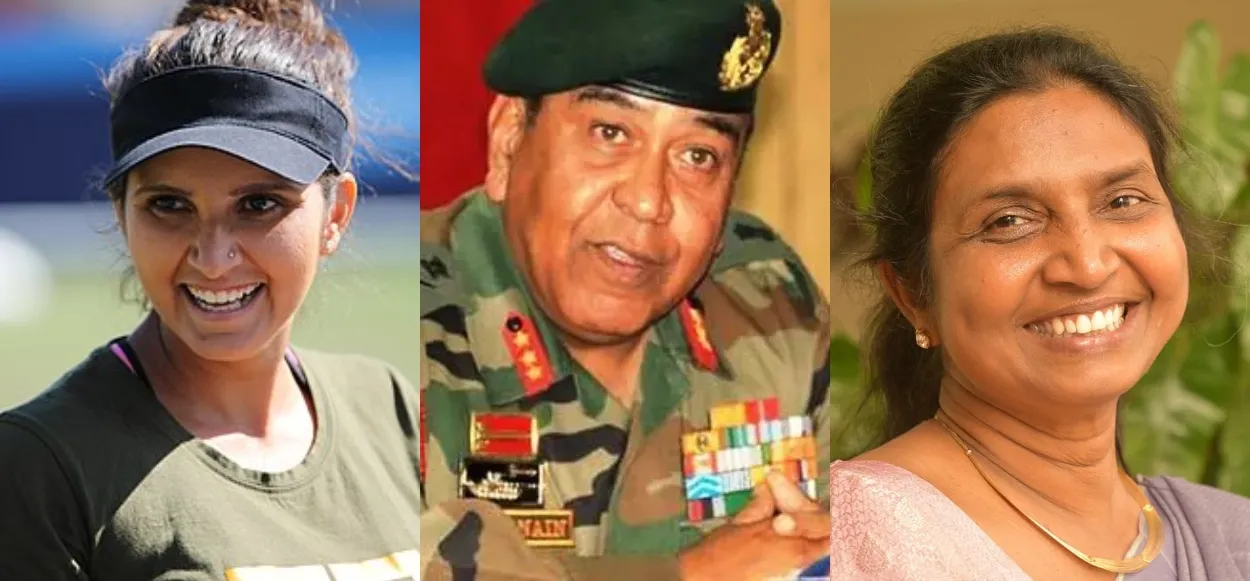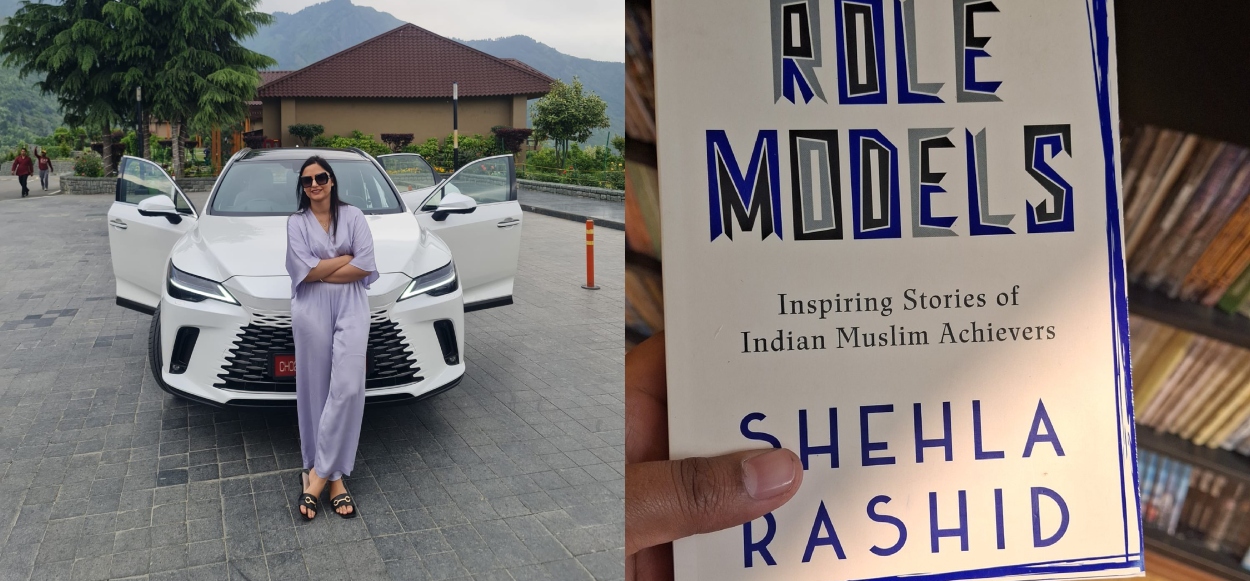
Pramod Joshi
Journalist and Islamic scholar Rafiq Zakaria once wrote that Hindu-Muslim relations have both positive and negative aspects. In his book on the Ayodhya dispute, he wrote, 'Only with the goodwill of Hindus can the future of Muslims in this country be safe.'
Book Review
A few years ago, journalist Saeed Naqvi recorded the pain of the Indian Muslims in his book 'Watan Mein Paraya' (Stranger in My Country). He believes that Muslims were being treated as aliens in their country.
Earlier too, many Indian and foreign writers have written on Hindu-Muslim relations. In the last three decades, AG Noorani, Rafiq Zakaria, MJ Akbar, Abdur Rahman, and Hilal Ahmed, have written books that provoked ideas, discussions, analyses, and conclusions about Muslims’ role, their identity, and future. The deprivation and victimhood of Muslims are mostly at the center of these narratives.
Jorg Friedrichs, Associate Professor of Political Science at the University of Oxford, wrote in an article about his book ‘Hindu-Muslim Relations: What Europe Might Learn from India’ published in 2019, “While researching my book, I decided to look around the world to see how non-Muslim majorities and Muslim minorities could live together. I found something to learn from democratic India.”
 Shehla Rashid Shora and her book
Shehla Rashid Shora and her book
He wrote, “Europeans can learn a lot from India in terms of managing community relations… For many centuries, Hindus and Muslims have coexisted peacefully in India, unlike Europe, where until two or three generations ago, almost every minority was at risk of persecution.
"Hindu-Muslim relations have sometimes turned deadly on a horrific scale. In 1947, when Pakistan separated from India, there was terrible violence on both sides. Despite so much violence and the separation of Pakistan, Muslims remain an integral part of India."
In this context, Shehla Rashid Shora's recent book 'Role Models-Inspiring Stories of Indian Muslims' treads a different route, as she comes up with a fresh perspective. This book is somewhat different. Maybe the narrative is also part of the change in Shehla Rashid's viewpoint.
In 'Role Models-Inspiring Stories of Indian Muslim Achievers' the featured Muslim personalities don’t speak as victims; their tone has no bitterness or resentment. Instead, they have tried to underline the role of Muslims in modern India positively. In this respect, this book is somewhat different.
In July 2015, a publisher announced the publication of a book on Shehla Rashid's articles on campus politics in the form of a book tentatively titled 'I, Student'. This was close to the proposed book of Kanhaiya Kumar, titled 'From Bihar to Tihar' - on his life in a Bihar village to his JNU days to his controversial arrest. Kumar's book was released, but Shehla Rashid was not. Back then, Kumar was the president of the JNU Students' Union and Shehla Rashid was the vice president. She was the first Kashmiri woman to win the student union elections in JNU. Shehla led many protests and was on TV channels and spoke about resistance to the political system. At one time, she was considered the voice of leftist youth who were taking on the Indian nation-state.
Overall, she came across as a modern, and progressive person with Leftist tendencies.
In 2013, when Pragash, a band of young Muslim women faced online harassment and death threats from Islamic fundamentalists in Kashmir, she also came out in support of the band.
For a while, she joined the Jammu and Kashmir People's Movement, which was started by former IAS officer Shah Faesal. Later she left that organization. Shah Faesal too returned to the IAS. Shehla Rashid's views have changed somewhat in recent years and this is reflected in her book.
While most of the writings on Indian Muslims since the 19th century come with a deep sense of pessimism, Shehla's book emphasizes the bright and positive side. It contains information about many important people like musician AR Rahman, tennis player Sania Mirza, Bollywood actress Huma Qureshi, General (Retd) Syed Ata Hasnain, ISRO's Nigar Shazi, and former Indian ambassador to Yemen Dr Ausaf Saeed, Professor Tariq Mansoor, Professor Faizan Mustafa and Dr Jamal Khan.
Shehla Rashid presenting her book to Union Minister Kiren Rijiju in Delhi (X)
Its preface is written by famous Bollywood scriptwriter Salim Khan, father of Salman Khan.
The objective of the book is to steer the Muslim narrative away from the 'neglected and oppressed image' of the community. She has portrayed Muslims who have worked for the country and humanity, and yet are not considered heroes of Muslims because they were neither martyred nor oppressed. She also mentioned Sir Syed Ahmed Khan who faced fatwas and censure by the community for his modern views.
She writes that while most Indians consider the 11th President Dr. APJ Kalam as a role model, Muslims question him for not doing enough for Muslims or religion. Shehla writes that this tendency is not prevalent among Muslims of India alone, the world's first Muslim Nobel Prize Winner Professor Abdus Salam was not even allowed to attend a function organized in his honour in Pakistan.
In her article in the book, Amna Begum Ansari writes how attempts are made to push Muslims towards fanaticism and extremism by instilling feelings of neglect and oppression in them. “If we analyze on a wider level, we will find that the 'feeling of alienation' in the minds of Muslims is not because of systemic injustice against them, but has been created by instilling 'feelings of oppression' in them.”
She writes that the fact that Muslims are advised to rely more on religious education than worldly knowledge is one of the reasons for poverty among Muslims.
The book underlines the need for change within Muslims. It is not possible to fully record the contribution of Muslims as citizens in a 286-page book. However, the 'Muslim civil society' as the author calls the club of those featured in the book, is calling for change or reform.
Shehla’s critics will tend to link politics behind her book, but there is a need to pay attention to the points she has raised. In the epilogue, she writes, ever since I appeared in a podcast with Smita Prakash on ANI in November 2023, where I praised the decisive steps taken by the Modi government in Jammu and Kashmir, people often ask me what is the 'real situation' in Kashmir.
The author presenting her book to cricketer Yusuf Pathan (X)
She writes that Articles 370 and 35A were socially regressive.” After removal of Article 370, I used to go to Boulevard Road along the Dal Lake for a morning walk. We were stunned to see girls walking, cycling, and running in workout attire. This was a historic change for us. Growing up in Kashmir meant that we had to face moral policing in Delhi and other cities even for simple things like wearing jeans.
“…The government is gradually creating an environment where political opinions can be expressed without fear of retaliation, censorship, or gun violence. Democracy is, first and foremost, a marketplace of political ideas, but the freedom to hold political opinions has been held hostage by soft-separatism, which has become the mainstay of survival… The government has engaged over 27,000 stakeholders in the democratic process by ensuring Elections at all levels of the Panchayati Raj. Over 9,000 of these elected representatives are women.”
She writes that keeping in mind the larger geopolitics of Pak-sponsored terrorism, India must carve out a larger role for Muslims, especially when it comes to articulating our national security posture and strategic objectives at the domestic and global Levels. Our diversity must be used as diplomatic strength. This book is an attempt to showcase India's diversity and openness. The dozen people featured in this book share six of the highest civilian awards given by the Indian government. Indian Muslims can aspire to the highest positions in all fields, including the military.
After all, how many non-Islamic countries in the world can boast of Muslim Army Generals? We have had not one but several Muslim generals in our army, three Muslim presidents, several Bollywood stars, and many leading Muslims in every walk of life. This diversity needs to be expressed and celebrated. Muslims too should give up the feeling of being victims. They should come out of the past and come into today's world.
ALSO READ: Why Pasmanda Muslims are speaking up against Maulana Azad
In their eyes, India is much more secular than the West. Muslims will have to become partners in the dream of a rapidly progressing India. For this, they will have to ignore the noise and election rhetoric and move forward like an ideal minority. It is difficult to say how much this book will reach the Muslims of India, especially the youth, but it should reach them. For this, its Hindi and Urdu versions can also be prepared.
Role Models-Inspiring Stories of Indian Muslim Achievers; Author: Shehla Rashid; Publisher: Penguin Random House India
The author is a former Editor of Dainik Hindustan
